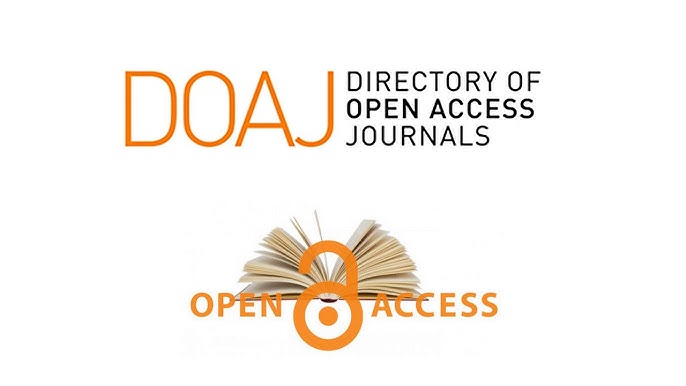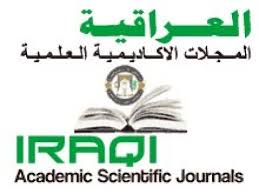Kurdish Separation Attempts in Iraq: Push & Pull Factors
Abstract
Abstract We cannot consider the Kurdish secession from Iraq and establishing their own state as an easy matter, there is no state that would accept such a thing so easily. On the other side there is the party that knows well that his mission cannot be done so easily, so he has to do his best to achieve such a goal. In fact, there are pushing and pulling factors considering Kurdish secession, and sometimes one factor could be a double- edged sword, starting from the international situation to international laws and international support reaching to the domestic factors like the political and economic situation in KGR, the Peshmerga, the KGR relation with the central government of Baghdad and the weakness of the Iraqi state. Secession would undermine the state of Iraq and effects its stability, so the Iraqi government should handle the matter carefully by strengthening the pulling factors at the same time of curing the factors that push the Kurds towards secession.
References
- Ahmed, Y. (2016). Partition as a solution to ethnic and sectarian conflicts in the Middle East: Possible Partition of Iraq as an example. Uk: leeds Beckett University.
- Ahram, A. I. (2019, February). Break all the borders:Separatism and the reshaping of the midlle east. Break all the Borders: Separatism and the. UK.
- AlaAldeen, D. (2016). State-building in a fragmented Kurdistan Region of Iraq. State-building in a fragmented Kurdistan Region of Iraq. Middle East Research Institute.
- Asadi, A. (2013). ELECTIONS AND TRANSITIONS IN THE ISLAMIC WORLD. Konrad Adenauer Stiftung. Konrad Adenauer Stiftung.
- Asadi, A. (2013). THE TERRITORIAL CONFLICT BETWEEN THE CENTRAL IRAQI. Konrad Adenauer Stiftung. jstor.
- Avcu, S. A. (2014). HEGEMONIC STABILITY THEORY AND SECESSIONIST MOVEMENTS IN THE MIDDLE EAST DURING THE 1990S. Ankara, turkey: Kyrgyzystan-Turkey Manas University,.
- Bengio a, O. (2017). The Kurds in a Volatile Middle East. Begin-Sadat Center for Strategic Studies. Begin-Sadat Center for Strategic Studies.
- Bengio. (2017). The Other Iraq after Mosul: What Future for the Kurdish Region? In A. Plebani, & A. Plebani (Ed. ), After Mosul. Re-Inventing Iraq (1 ed. , pp. 69-90). Milano, Italy: Ledizioni LediPublishing.
- Bishku, M. B. (2018, Winter). Israel and the Kurds: A Pragmatic Relationship in Middle Eastern Politics. Journal of South Asian and Middle Eastern Studies, 41(2), pp. 52-72.
- Borsari, F. (2019). Institutionalisation of the Peshmerga: tipping the balance of Iraq's stability. Middle East Research Institute. Middle East Research Institute.
- Bruinessen, M. v. (2005). Looking into Iraq. European Union Institute for Security Studies (EUISS. European Union Institute for Security Studies.
- Butt, A. I. (2017). An External Security Theory of Secessionist Conflict. In A. I. Butt, Secession and Security (pp. 17-41). Cornell University Press.
- Ciprut, J. V. (2017). The Kurds:: Neither the Twin of Palestine Nor the Clone of Israel. Begin-Sadat Center for Strategic Studies.
- Entessar, N. (2018, Winter). Uneasy Neighbors: Iran and the Kurdish Regional Government. Journal of South Asian and Middle Eastern Studies, 41(2), pp. 73-84.
- Fliervoet, F. (2018). Fighting for Kurdistan? Clingendael Institute.
- Hassan, K. (2015). KURDISTANS POLITICIZED SOCIETY CONFRONTS A SULTANISTIC SYSTEM. Carnegie Endowment for International Peace. Beirut: Carnegie Middle East Center.
- Itzchakov, D. (2017). Strategic and Geopolitical Considerations in ;Conflicting Interests:. Begin-Sadat Center for Strategic Studies. Begin-Sadat Center for Strategic Studies.
- KEELER, S. (n. d. ). Peacebuilding The Performance and Politics of Trauma in Northern Iraq. In D. B. Mundy (Ed. ), The Post-Conflict Environment:Investigation and Critique (pp. 68-102). USA: University of Michigan Press.
- Kelly, V. E. (2018, Winter). The Kurdistan Referendum: An Evaluation of the Kurdistan Lobby. Journal of South Asian and Middle Eastern Studies, 41(2), pp. 16-37.
- Koskenniemi, M. (1994, April). National Self-Determination Today: Problems of Legal Theory and Practice. The International and Comparative Law Quarterly, 43(2), pp. 241-269.
- Kuoti, Y. (2017). After the Kurdistan Referendum: Iraq's Road to Reconciliation. Middle East Research Institute. Middle East Research Institute.
- Larrabee, F. S. (2010). Iraq and the Kurdish Challenge. In F. S. Larrabee, Troubled Partnership:U. S. -Turkish Relations in an Era of Global Geopolitical Change (pp. 11-32). USA: RAND Corporation.
- Lukas, S. (2017). What future for Northern Iraq? The Kurdish dilemma and shifting spheres of influence in the region. Federal Academy for Security Policy.
- Malmvig, H. , & Rojan, H. (2014). BACKING THE KURDS IN THE FIGHT AGAINST IS IN IRAQ AND SYRIA. Danish Institute for International Studies.
- Mohammed, A. j. (2013). The politics of Iraqi Kurdistan :towards federalism or secession? Australia: University of Canebbrra.
- Morris, S. , Wirya, K. , & Ala'Aldeen, D. (2015). The Future of Kirkuk:A Roadmap for Resolving the Status of the Governorate. Middle East Research Institute.
- Mund, B. B. (2013, 12 01). Breakaway States: Understanding When The. CUREJ:College Undergraduate, 1-71.
- Palani, K. , AlaAldeen, D. , & Cersosimo, S. (2018). Turkey and the European Union:Conflicting Policies and Opportunities for Cooperation Over Iraq, Syriaand the Kurdish Political Actors. Middle East Research Institute.
- Phillips, D. L. (2009). Confidence Building Between Turks and Iraqi Kurds. Atlantic Council. Atlantic Council.
- Rubin a, M. (2016). Is This Kurdistans Moment? In M. Rubin, Kurdistan Rising?Considerations for Kurds, Their Neighbors, and the Region (pp. 19-26). USA: American Enterprise Institute.
- Rubin b, M. (2016). What Do the Kurds Want? In M. Rubin, Kurdistan Rising?Considerations for Kurds, Their Neighbors, and the Region (pp. 27-55). USA: American Enterprise Institute.
- Rubin c, M. (2016). Who Are the Kurds? In M. Rubin, Kurdistan Rising?Considerations for Kurds, Their Neighbors, and the Region (pp. 5-18). USA: American Enterprise Institute.
- Rubin d, M. (2016). Would Kurdistan Have a Viable Economy? In M. Rubin, Kurdistan Rising?Considerations for Kurds, Their Neighbors, and the Region (pp. 64-90). USA: American Enterprise Institute.
- Rubin, M. (2016). Could Kurdistan Defend Itself Militarily and Diplomatically? In M. Rubin, Kurdistan Rising?Considerations for Kurds, Their Neighbors, and the Region (pp. 107-118). USA: American Enterprise Institute.
- Saeed, Y. (2017). Is Kurdistan Independence Inevitable? Middle East Research Institute. Middle East Research Institute.
- Sharif, S. M. , & Towfiq, K. S. (2015, June). Erbil-Ankara Relations:: Paradoxes, Challenges and Harmonization. Research Paper. Doha, Qatar: Arab Center for Research and Policy Studies.
- . (2017). : . . : .
- . (/, 2018). . . . 53(213) 48-60.



